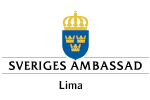![]() For historic clarification. Fujimori and Montesinos took a victory that wasn’t theirs. Hernando de Soto, president of the ILD, highlights the leading role of thousands of brave farmers. This ends the myth of the Fujimori victory.
For historic clarification. Fujimori and Montesinos took a victory that wasn’t theirs. Hernando de Soto, president of the ILD, highlights the leading role of thousands of brave farmers. This ends the myth of the Fujimori victory.
From 1980, when Peru was coming out of a military dictatorship, The Shining Path, after a series of attacks on police stations took control of rural towns in the department of Ayacucho.
In the beginning the farmers had high expectations due to the promises made by the Shining Path, but when they wanted to collectivize their lands –ignoring the fact that the lands had already been divided into plots-, expropriate part of their production, and recruit their children, the farmers began arming a resistance.
In order to defend themselves, the farmers set up Self-Defense Committees, the armed rural DECAS (Spanish acronym for the Self-Defense Committees). With axes, knives, more than 120,000 people came together with the armed forces to prevent the Maoist organization from taking over large territories in the country.
This local resistance first started when the farmers from Ayacucho, Huancavelica and Apurímac rebelled against the Shining Path policies.
Economist and president of the Institute for Liberty and Democracy (ILD), Hernando de Soto, has thoroughly studied this process and comes to the conclusion that after ten years the decisive victory was only possible when the armed forces allied with the DECAS (Committee of Civil Defense against terrorism).
"This delay was unfortunate because it was similar to the war in Vietnam, or the current one in the Middle East, as the soldiers and policemen that were sent from Lima to the highlands and the jungle, fought blindly as they could not distinguish the terrorists from the peasants because both had the same complexion and clothing".
De Soto remembers that the leaders from the DECAS told him at the beginning “the military engaging in combat were not only blind from the eyes, but also from speech as they did not speak the quechua language".
An extralegal army How to convince the international community and the armed forces that the informal peasant army was the expression of the Peruvian industrial revolution?For two years Hernando de Soto and members of the ILD thought of a plan in order to make the peasant farmers situation fit into the obligations of the international treaties signed by Peru.
The Institute for Liberty and Democracy team invited inspectors from the UN and from developed countries to visit the conflict zones and to meet with the different rural organizations, including the DECAS, in order to identify “valid interlocutors” and allow them to join the armed forces to defeat terrorism.
After several negotiations of the highest political level, the American authorities accepted the Peruvian position and confirmed it as part of the agreement signed with Peru on May 14, 1991.
The coca farmers were no longer defined as drug dealers but as extra-legal producers; the repressive strategy had to be directed exclusively against the drug dealers; and the best way to fight the drug trafficking was through an alliance between the government and the farmers by using policies that prioritize democratic participation, property rights, and alternative development measures that favor the environment.
Towards the end of 1991, the DECAS had grown six times larger, composing a large force of 120,000 armed men. By 1992 the deaths had substantially diminished and the Shining Path was defeated not only as a military force but also as a political option.
As Hernando de Soto states, the new recategorization allowed for the peasants to get out of criminal charges, integrate them into the armed forces by creating the conditions that allowed them to win the war against SP in the country side, one year before Abimael Guzmán was captured in Lima without his comrades to protect him.
Unrecognized Heroes De Soto points out that the farmers and informal miners that prevented the nightmare of a terrorist dictatorship have paid for it with dozens of thousands of lives lost, but have never been recognized. "Until now, no museum, statue, crying wall has been erected to honor until today is still the largest Peruvian military reserve that fought against violence".
De Soto asserts the worst thing is that even today many still believe the victory against the SP, the relative safety and our economic progress is a result of the April 5 Coup and in the Montesinos’ circles they silently have taken over a victory that is not theirs, and use it in their political platforms, with “security promises that they are unable to meet because they lack the necessary experience”.
It is important for Hernando de Soto to remind us that the farmers were the ones that fought and that keep fighting “for property, democracy and life”.
...
Read the original version in Spanish on the website of La Republica


